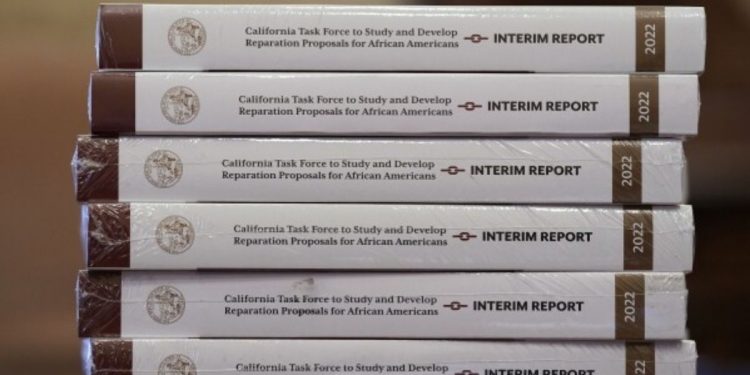Democratic Gov. Gavin Newsom’s budget, which plans to spend up to $12 million on reparations legislation, represents a significant step in the state’s efforts to atone for a history of racism and discrimination against black Californians.
The reparations financing in Newsom’s $297.9 billion budget, signed over the weekend, does not indicate which groups will receive the funds. This year, lawmakers have not considered widespread direct payments to black Californians.
The state legislature is considering plans to issue a formal apology for California’s role in maintaining discrimination against black inhabitants, to establish an agency to oversee reparations programs, and to identify families whose land was wrongfully confiscated through eminent domain proceedings.
The investment follows decades of a freeze on federal reparations attempts.
“We often say that the budget reflects our values and priorities, so the fact that there’s any money for reparations should be cause for celebration,” said state Sen. Steven Bradford, a Democrat from Los Angeles, adding that he wished the allotment had been larger.
California has made the most progress in considering reparations ideas for black residents, but other states have made substantial strides. In recent years, Illinois and New York have approved legislation to examine reparations options for African Americans. Florida established legislation in the 1990s to establish a college scholarship fund for the descendants of black people killed in a 1923 massacre by a white mob.
However, some opponents of the reparations proposals under consideration by California lawmakers contend that taxpayers shouldn’t foot the bill to change long-standing policies and practices.
“Slavery was a stain on our nation’s history, but I don’t believe it’s fair to try to right the wrongs of the past at the expense of people today who did nothing wrong,” Assembly Republican Leader James Gallagher said in a statement. “More than a quarter of Californians are immigrants; how can we look at those people, who are struggling as it is, and say it’s on them to make up for something that happened more than 150 years ago?”
Senate President Pro Tempore Mike McGuire, a Democrat, said at a Monday event that “the $12 billion is not nearly enough” but that lawmakers fought hard to acquire the funds amid a difficult budget year.
According to an estimate by the Assembly Committee on Appropriations, operating the reparations agency may cost the state between $3 million and $5 million per year. The Senate Appropriations Committee has stated that examining claims by families alleging racial discrimination could cost the state hundreds of thousands of dollars, although the Legislature has not provided an estimated cost for implementing the eminent domain bill.
In May, a key committee defeated Bradford’s proposal to provide property tax and housing help to descendants of enslaved black people.
Kamilah Moore, chair of the first-in-the-nation state reparations task force, was unhappy that lawmakers did not submit legislation this year to give free tuition at public colleges to descendants of enslaved black people, as suggested in the group’s final report.
Moore, however, said it was “good news” to see $12 million in reparations included in the budget as a starting point.
“It means that they’re taking accountability and responsibility, and they’re acknowledging the harms and atrocities to this particular population,” she told me. We should not overlook that significant step.










